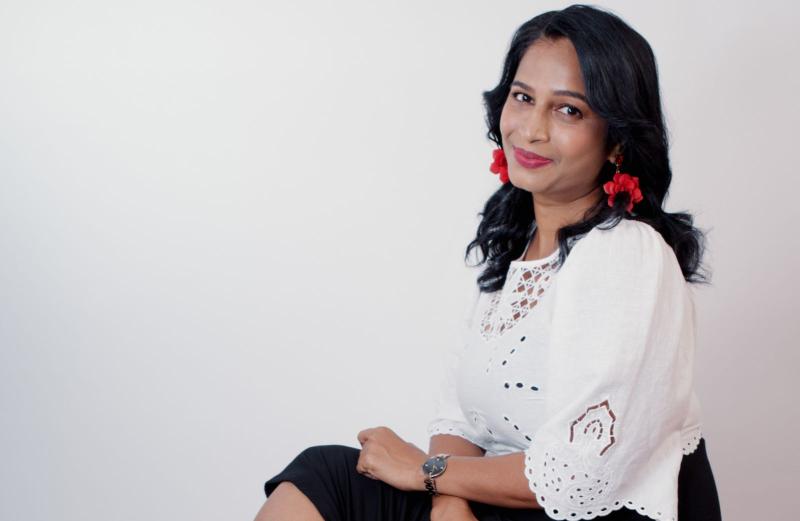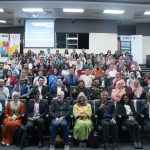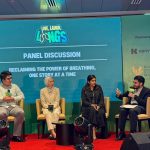When we think of cancer, our minds often jump to treatments, survival rates and hospital corridors filled with hope and despair. But there’s another battle that many Malaysians with cancer face, one that’s quieter, invisible and equally damaging: stigma.
In Malaysia, stigma surrounding cancer is real and pervasive. It does not just affect the patient; it ripples outward, touching family members, workplaces and entire communities. People with cancer often find themselves blamed for their illness. Friends and relatives may whisper, “She must have eaten the wrong food”, “He probably smoked too much” or “It’s karma”.
In our research with over 2,000 Malaysians, we found a worrying pattern. Many still believe in mythical causes of cancer. Nearly half thought using deodorants or microwave ovens could cause cancer, while others blamed wearing the same underwear for a long time or intimacy with someone with cancer. This confusion blurs the line between science and myth, feeding a culture where those affected are silently judged for “bringing it upon themselves”.
Such false beliefs matter deeply. They shape how people view cancer and more importantly, how they treat people with cancer. In my work and through conversations with colleagues, I’ve heard of young women who hide their diagnosis from their families, fearing abandonment or rejection. I’ve also heard of men who quietly carry their diagnosis, afraid they will be seen as weak or less capable. Tragically, I have come across women whose husbands abandoned them after their diagnosis, some even remarrying while their wives were still undergoing treatment.
This reflects how stigma is compounded by gendered expectations. In our society, a woman’s body is closely tied to her identity as a wife, mother and caregiver. A diagnosis of breast or cervical cancer, especially, can challenge these roles. For example, a mastectomy, the surgical removal of one or both breasts, may be seen as a loss of femininity. Supporting people to regain confidence in their bodies is therefore an important part of reducing stigma and improving recovery. Access to breast reconstruction or prostheses can make a profound difference for women. Men with prostate or testicular cancer may also struggle with changes to their bodies and sense of masculinity, including challenges related to sexual function or fertility. Yet in Malaysia, services like counselling or sexual rehabilitation are still not widely available or prioritised, leaving many unable to access the help they need.
As one woman with breast cancer told us, “When I told friends my cancer came back, they treated me like I was already dying”. This perception of cancer as a “death sentence” persists, especially in low- and middle-income countries like ours where late-stage diagnoses remain common. It’s no surprise that people delay screening or treatment not just because of cost or access but because of fear of being labelled as someone whose days are numbered.
And stigma is not confined to the individual alone. Family members may also experience “courtesy stigma”, being pitied or avoided because of their association with a person with
cancer. Spouses may be told to “move on” rather than care for their sick partner. I have also heard of mothers who keep their diagnosis a secret, fearing their daughters might be seen as less marriageable if the family’s cancer history were known.
This stigma does not only affect emotions; it also affects health outcomes. Research shows stigma can delay diagnosis, disrupt treatment and isolate people from support systems. Our own work aligns with this. People with lower health literacy, especially those from low-income or less-educated backgrounds, were more likely to believe in mythical causes of cancer, making them more vulnerable to stigma and its consequences.
Addressing cancer stigma in Malaysia requires more than pamphlets or awareness campaigns. We need a multi-level approach. First, we must invest in cancer literacy, ensuring all Malaysians have access to clear, culturally appropriate information about what causes cancer and what does not. Campaigns should avoid reinforcing stigma. For example, anti-smoking ads should focus on empowering smokers to quit, not shaming them.
Second, we must tackle stigma in healthcare settings. Health professionals need training to recognise and counter stigma so patients are treated with empathy rather than blame.
Third, we need workplace policies that protect people affected by cancer from
discrimination. Cancer is no longer an automatic death sentence; many people live well for years after diagnosis. Yet our employment laws and insurance policies haven’t caught up. People have told me of being denied promotions, forced to resign or rejected by insurers because of a history of cancer. Malaysia could adopt protections similar to those in other countries, ensuring people are not penalised simply for having had cancer.
Fourth, we need policies that embed stigma reduction into cancer care, not as an afterthought but as an integral part of care. This includes services like psycho-oncology and counselling to help people navigate the social and emotional impact of cancer. It also means creating spaces where people with cancer can connect with others and shape solutions that work for them.
Lastly, we need to centre the voices of those with lived experience. People who have walked this path know best where the gaps are. They can teach us how stigma shows up in everyday interactions, when a neighbour stops visiting, when a colleague avoids eye contact or when an acquaintance offers unsolicited advice.
Cancer stigma thrives in silence. If we are serious about improving cancer outcomes in Malaysia, we must break that silence not just in hospitals but in homes, workplaces and schools. We must move from a culture of blame to one of support and solidarity.
At its core, reducing cancer stigma is not just a health issue; it is a human rights issue. Every Malaysian deserves to live free from shame and discrimination, to access care without fear and to be embraced with dignity, whether they are living with cancer, living beyond it or standing beside a loved one who is.
As we work toward better cancer care, let’s remember it is not just about curing the disease; it is about healing the society around it.






